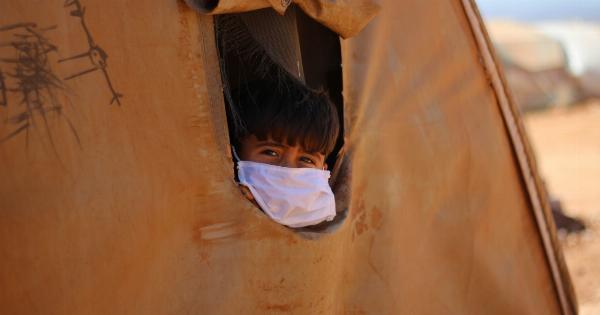Measles is a contagious viral disease that can affect anyone, but it is more common in children under five years of age. The symptoms of measles can be quite severe, and it is crucial to seek medical attention as soon as possible.
In this article, we will discuss how to treat measles in children.
How is Measles Diagnosed?
Measles is diagnosed through a physical examination and blood tests. If your child has symptoms of measles, a doctor will conduct a physical exam to look for the characteristic rash and other symptoms. Blood tests can also detect the measles virus.
How is Measles Treated?
There is no cure for measles, but treatment can help manage the symptoms of the disease. Here are some ways to treat measles in children:.
1. Get Plenty of Rest
Rest is an essential part of treating measles. Encourage your child to rest as much as possible to help their body fight the infection. Avoid activities that may make your child feel tired or drained.
Ensure to take off from day care or school for at least a few days after the onset of symptoms or until the child has made a full recovery.
2. Stay Hydrated
Measles can cause a high fever, which can lead to dehydration. Encourage your child to drink plenty of fluids, such as water, juice, or soup, to stay hydrated. Avoid drinks high in sugar that may make your child feel worse.
If your child is having difficulty drinking fluids, consider giving them an over-the-counter oral rehydration solution (ORS).
3. Manage Fever and Pain
Measles can cause a high fever and body aches. Over-the-counter fever reducers such as acetaminophen or ibuprofen can help reduce the fever and manage pain.
Follow the recommended dosage on the package, and do not give your child aspirin, which can lead to a rare but life-threatening condition called Reye’s syndrome in children with viral infections.
4. Use a Humidifier
A humidifier can help ease the symptoms of measles, such as cough and sore throat. The moist air can help soothe the throat and reduce coughing. Be sure to clean the humidifier regularly to prevent the growth of bacteria and mold.
5. Treat Complications
If your child experiences complications from measles, such as pneumonia or ear infections, treatment may be necessary. Contact your child’s healthcare provider if you notice any new symptoms or if your child’s symptoms worsen.
Preventing Measles
The best way to treat measles is to prevent it from occurring in the first place. Measles can be prevented with the MMR (measles, mumps, rubella) vaccine.
The vaccine is safe and effective and is given to children in two doses, usually at 12-15 months and 4-6 years of age.
Conclusion
Measles can be a severe disease, but with treatment, the symptoms can be managed. Ensure that your child rests and stays hydrated, manage pain and fever, and use a humidifier to help ease cough and sore throat.
Seek medical attention if your child experiences complications from measles. The best way to prevent measles is through vaccination. Consult with your child’s healthcare provider to ensure that they are up to date with their vaccinations.































